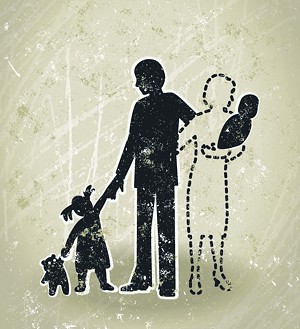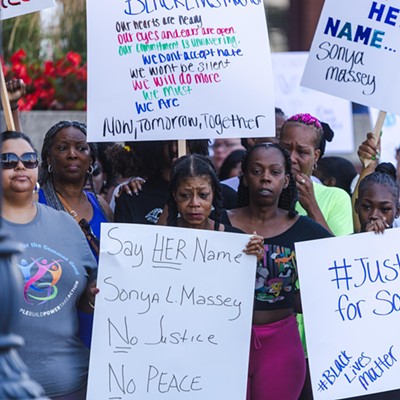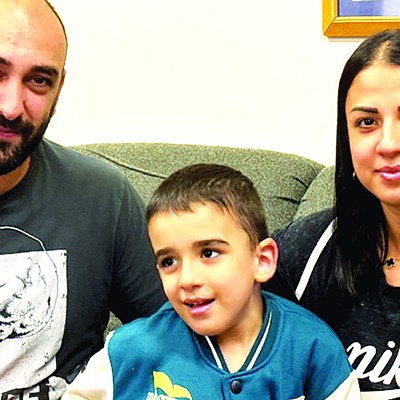Vaccinations mean hope for an end to the pandemic is on the horizon. But in Springfield, the number of infected and ill pregnant women actually went up after vaccinations became available. That's according to Dr. Robert Abrams, head of the maternal-fetal medicine division at SIU School of Medicine and director of obstetrics for the South-Central Illinois Perinatal Center in Springfield. He said pregnant women in Springfield with COVID-19 complications are sent to HSHS St. John's Hospital, since that is where the high-risk OB-GYN doctors in town are.
From March 2020 to March 2021, Abrams said about 13 pregnant women with COVID-19 were admitted during the entire year. But in April of this year, there were eight pregnant patients with COVID-19 who were ill enough to be admitted to the hospital. "Every day, I might have five to 10 conversations with pregnant women regarding the safety of vaccines," said Abrams. "In my experience, there's great hesitation and anxiety to receive these vaccines in pregnancy." Meanwhile, research has found, "the risks of getting COVID when you're pregnant are far greater than the minimal, if any, risks from the vaccine," Abrams said.
While it's too soon to capture the entire role the pandemic may have played in the lives of pregnant people, Abrams is part of a statewide maternal mortality review committee tasked with researching trends. In 2018, the committee released its first report on maternal mortality and morbidity. In late April, the committee, overseen by the Illinois Department of Public Health (IDPH), released the second edition of its report. The new report covers deaths from 2016 and 2017. One of its key findings was that Black women in Illinois were about three times more likely than white women to die of a pregnancy-related condition. The report found that "an average of 75 Illinois women died while pregnant or within one year of pregnancy each year during 2008-2017, with the highest number recorded in 2017 (a total of 103 deaths)."
"This report shows us that there are two stories of maternal mortality: Black women continue to die at an unacceptable disparity due to medical causes, and the rate of white women dying due to mental health causes of suicide and overdose has grown," said IDPH director Dr. Ngozi Ezike in a news release.
The report is meant to expand the understanding of inequities in maternal health outcomes. As Ezike pointed out, the leading cause of pregnancy-related death was mental health disorders, including substance use disorders and suicide, which represent 40% of total deaths. Pregnant and postpartum white women were more likely to die from a mental health cause, while Black women were more likely to die from a preexisting medical condition.
"In our first report, we indicated that Black women were more than six times as likely to die from a pregnancy-related condition as white women," said Ezike during an April 29 news conference. "While the disparity has narrowed for pregnancy-related deaths between Black and white women, it is not due to conditions improving for Black women, but is instead due to worsening conditions for white women."
During the news conference, Shannon Lightner, deputy director of IDPH's Office of Women's Health and Family Services, told the story of a patient named Gabrielle. Gabrielle, a Black woman, had a successful C-section and asked to get a tubal ligation at the same time to prevent future pregnancy. "After surgery, Gabrielle complained of being unable to breathe and having a swollen abdomen. Her heart rate was high." But, "It took several hours before providers seriously considered her complaint," said Lightner. Gabrielle had suffered a hemorrhage and died within 24 hours of giving birth.
In addition to researching mortality rates of pregnant women and those who have recently given birth, the statewide committee was tasked with providing recommendations. Some of them relate to Gabrielle's case, said Lightner. For instance, hospitals should "provide training on racism, bias and trauma-informed care."
The committee also recommended that Illinois Medicaid and other health insurance plans should reimburse pregnant women for telehealth appointments that are conducted via video or phone. Abrams said telemedicine helps reach women in more rural areas. "It's so important to provide telehealth services," he said. "It's much more difficult for the ones who live in rural areas to obtain equal obstetrical care as if they were in a higher density area with more providers." Earlier this year, Illinois became the first state to provide new mothers with full Medicaid benefits for one year after giving birth. The previous coverage period had been 60 days after birth.
Other recommendations from the maternal morbidity and mortality review committee include that the state should expand access to programs that provide home visits for pregnant and postpartum women with a history of certain medical or mental health conditions. The full report can be viewed at www.dph.illinois.gov/mmmr.
Contact Rachel Otwell at [email protected].


















